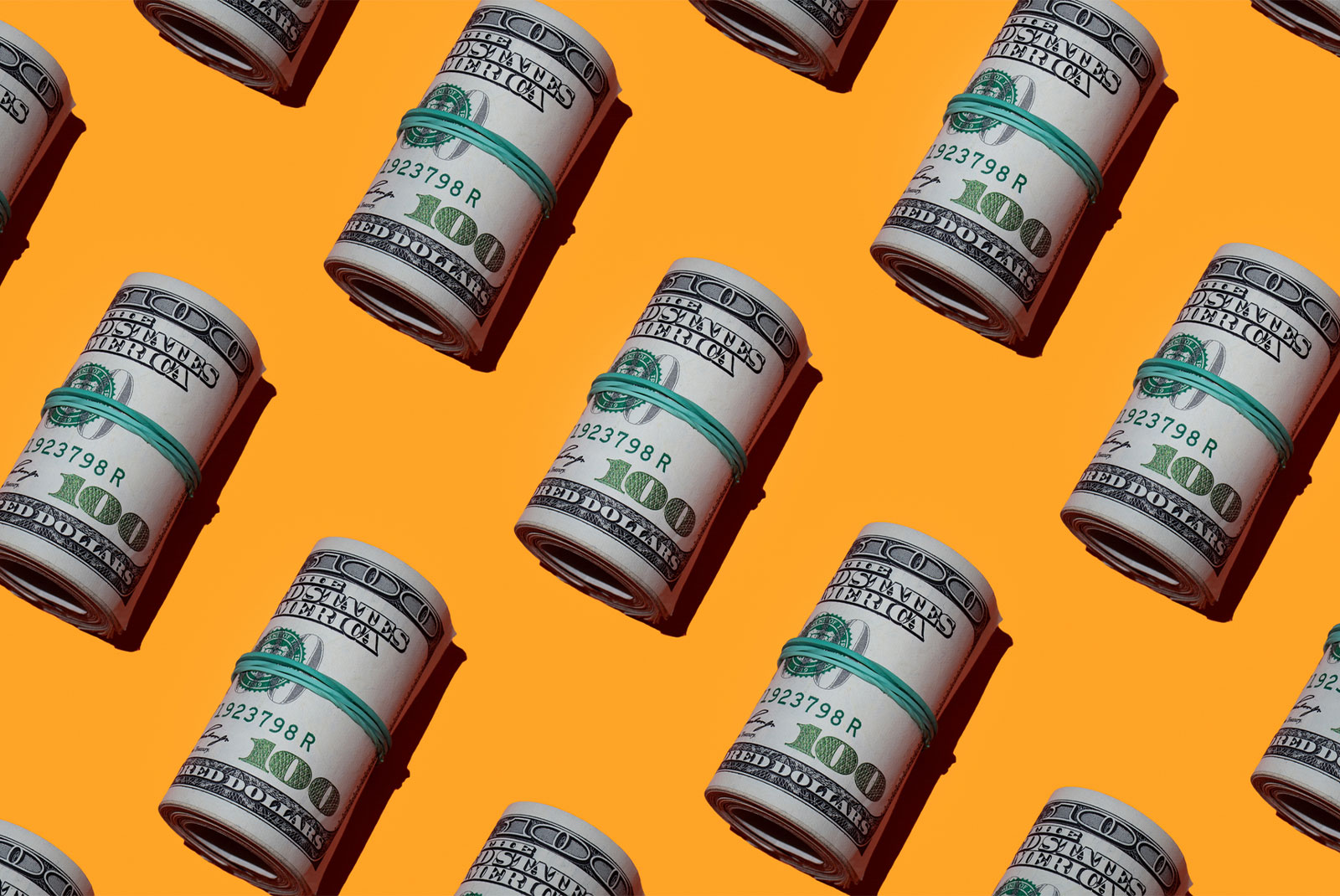Ahhh, student loans. The expense that seems to be never-ending.
Yeah, they get a bad rap these days. While we’re not saying that you couldn’t throw some shade their way, remember that you got them for a good reason. So let’s focus on what to do now.
If you’re smart with how you repay them, you can pay them off sooner, pay less overall and even help your credit score.
There are three basic ways to manage your student loan debt. They’re all legit, and one just might fit better into your big picture goals, your budget or both.
- Smooth and steady: Stick with the standard repayment plan
- Fast and furious: Pay off your student loans sooner by paying extra each month
- Baby steps and breathing room: if you’re comfortable taking longer to pay off the loan (meaning more interest paid over time), make smaller monthly payments
No matter which tactic you end up using, you need to absolutely OWN repaying your student loans.
Here are some tips to help.
Tip 1: Know Your Student Loans Inside and Out
Use knowledge about your student loans to help manage them like a boss.
Here are the must-knows: 👀
- The number of different loans you have to pay back
- Which ones are federal student loans and which ones are private student loans
- The name and contact info for each loan servicer associated with your loans
- The loan balance for each student loan
- The total amount you owe on all your loans
- The minimum monthly payment amount for each loan
- The interest rate for each loan
Tip 2: Go With the Student Loan Repayment Plan That Gets You
You’ve got repayment options. Choosing the right one can make a huge difference for you.
If you’ve got federal student loans, the standard repayment plan is no joke: They give you 10 years to pay off your loans.
This is the fastest way to get your loans out of your life without having to pay extra each month.
Or maybe you’d benefit from an income-driven repayment plan built around what you earn each month? It’s a great option if you need more room in your budget until you can start earning more.
There are a few income-driven plans to choose from, including Income-Based Repayment (IBR) and Income-Contingent Repayment (ICR).
Tip 3: Check Your Eligibility for Public Service Loan Forgiveness
If you have federal student loans and work at a government or nonprofit job, you might be in luck. You could be eligible for loan forgiveness if you meet the following requirements:
- Work full-time for 10 years at a government or nonprofit employer
- Make all 120 monthly student loan payments on time
- Hold a Direct Loan or consolidate federal student loans into a Direct Loan
- Repay your loan under an income-driven repayment plan
Yeah, it’d be nice if eligibility for those in public service was a little looser. 🧑🏽🚒 But if you do qualify, having what’s left of your student loans forgiven can be a huge weight lifted off your budget.
You might want to check out StudentAid.gov to get more details on eligibility for The Public Service Loan Forgiveness Program.
Tip 4: Pay More Than the Minimum Payment… If You Can
If you’ve got some wiggle room in your budget, one of the simplest ways to get student loans off your back sooner than later is to pay more than the minimum payment each month.
This chops away at your principal balance faster. And you end up paying less interest because there’s less balance for interest to be applied to the next month.
Think of it this way: If your balance is a cupcake and interest is stale sprinkles, the smaller the cupcake the fewer “meh” sprinkles the baker can press onto it. 🧁
Tip 5: Make Payments Once Every 2 Weeks for a Sneaky Reason
This is an under-the-radar hack for faster student loan repayment.
When you make a student loan payment every other week instead of once a month, you’ll shave off some time from paying down your loan. You’ll also end up paying less interest.
Now, don’t worry. We are not suggesting that you pay the full monthly amount you owe twice a month (unless you want to).
But by paying half of your monthly payment every other week, you’ll end up making 13 months of payments instead of 12.
Trust us on this, or hit us up for the equation if you’re bored. 🤷♀️
Tip 6: Decide If Consolidating or Refinancing Your Loans Would Help
To help you get a better grip on a crazy collection of loans, you can consolidate or refinance your student loans into one loan that’s easier to budget around (and may be less expensive).
Consider one of these options if the best repayment plan still isn’t giving you an edge:
- Consolidation: The borrower combines multiple federal student loans into a single federal loan with one monthly payment. You do that through the U.S. Department of Education.
- Refinancing: The borrower gets one new loan from a private lender to pay off multiple federal loans.
Either one can potentially save you money over time or make your monthly payments smaller.
Just know that switching to private student loans will cancel your eligibility for federal student loan benefits, like income-based repayment plans or loan forgiveness. 😢
Tip 7: Pay Interest Early for a Smaller Bill Later
If your loan is in a grace period, deferment – or even forbearance – consider making payments on the interest. It can help you out later.
Right now, many student borrowers are making interest-only payments while federal student loan payments are suspended during the coronavirus pandemic. Before the U.S. Department of Education makes you start paying monthly payments again on August 31, 2022,[1] you can make a dent in your loan amount by paying just the interest on it.
The interest you pay off early won’t be added to your loan balance later. So your student loan payments will be smaller when you start paying again.
This frees up some money each month to spend on other financial goals while you’re building your life after college. 💸
Tip 8: Give Autopay a Chance
Already on Team Autopay? Extra points for you. If not, you should know that enrolling in autopay can save you some money while also making it easier to manage your bills.
It’s a super easy way to manage multiple student loans with due dates that might be all over the place. And federal student loan servicers will actually lower the interest rates on your Direct Loans by 0.25% if you use autopay.[2] Your private lender might do this, too.
Dropping the interest rate by 0.25% may not save you a ton of money, but it ain’t chump change either. And even small victories are worth celebrating! 🎉
You can even use what you save each month to pay a little extra toward the loan balance.
Tip 9: Throw Surprise Money at the Problem
Using money you didn’t expect to have is a relatively painless way to tackle any financial goal. Consider using that “surprise money” for student loan debt.
Your student loans might feel like pests. 🐀 You don’t want to get near it you don’t have to. But for some strangely satisfying financial fun, consider tossing some extra cheddar at them when:
- You earn a raise or a bonus
- You get a tax refund
- You receive a cash gift
- You sell something online
- You get a retail rebate
- You start a side hustle
Tip 10: Don’t Fear the Dispute
Student loan repayment is a two-way street. If your student loan servicer ever gets something wrong – like your balance, due date or status of your loan – you should dispute it.
Look closely at your bills and statements. 🔎 If you notice anything wrong that could disrupt your budget or put you in a big financial hole, reach out to your lender or servicer ASAP.
If they can’t resolve the issue for you – no matter how hard you’ve tried to work with them – don’t give up. You’ve put in a lot of effort to learn how to repay your student loans. You have more than earned any help you might need from the guardians of borrowers’ rights:
- For federal student loans, turn to the Federal Student Aid Ombudsman Group for help
- For private loans, submit a complaint to the Consumer Financial Protection Bureau
Eye of the Tiger
People do things all the time for their health. Even when it makes them feel salty, they power through for the greater good. It’s the same with taking on student loans. You invested in a career-boosting education, but right as you’re trying to take off in life, you have to pay them back.
Student loans are kind of like doing those last five sit-ups or drinking a smoothie made out of seven different grasses. You know it’s good for you, but…
Use these tips to make less pain for more gain. When it comes to repaying your student loans, make a plan that fits nicely into your big money picture – and stick with it. 🏋️
The Short Version
- Financial health starts with managing your debt, and knowing how to repay student loans, like a champ, is key
- Taking a strategic approach to repaying student loans can help you pay them down faster, pay less over time – and even help your credit score
- You’ve got options for a variety of repayment moves you can make – some big, some small – and they’re all pretty straightforward
U.S. Department of Education. “Biden-Harris Administration Extends Student Loan Pause Through August 31.” Retrieved April 2022 from https://www.ed.gov/news/press-releases/biden-harris-administration-extends-student-loan-pause-through-august-31
Federal Student Aid Information Center. “Make a Student Loan Payment.” Retrieved November 2021 from https://studentaid.gov/manage-loans/make-payment




